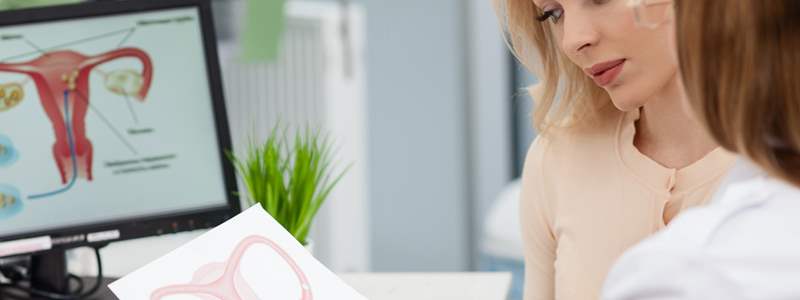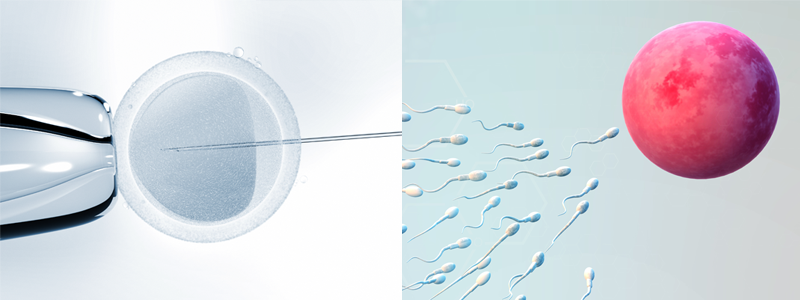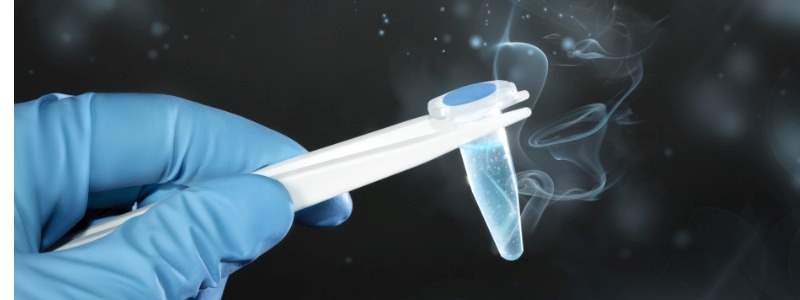It is important that your fallopian tubes are working properly when you are trying to conceive naturally.
In each monthly cycle, one of your ovaries will release an egg which is picked up by the fallopian tube. For successful conception, the egg meets a sperm in the end of the fallopian tube, to fertilise and form an embryo which travels down the tube to implant in the uterus a few days later. Most commonly your body will release an egg from alternate ovaries from cycle to cycle, and the egg from the left ovary will be picked up by the left fallopian tube, and the same on the right side.
If just one of your fallopian tubes is working as it should, then you can still conceive naturally, although the chances are reduced.
What causes blocked fallopian tubes?
When fallopian tubes are not functioning properly, they can be either partially or fully blocked, or there can be damage to the internal layer of the tube which affects how the egg can travel through the tube. There is a range of possible causes for this which includes:
- Previous ectopic pregnancy: if you experience an ectopic pregnancy – where a fertilised egg implants inside a fallopian tube – then often surgery is required. This can cause scarring, and surgery can involve removing the affected fallopian tube.
- Endometriosis: this is a condition where the tissue that forms the lining of the uterus develops outside the uterus. It can cause scar tissue and adhesions which can then block fallopian tubes, or cause organs to stick together with adhesions.
- Pelvic inflammatory disease (PID) is a relatively common condition which can affect the womb, fallopian tubes and ovaries. It’s often caused by bacterial infections – such as STIs including chlamydia or gonorrhoea. PID can cause scarring of the fallopian tubes which can cause blockages, affect how well eggs can pass through the tube and increase the risk of ectopic pregnancy. With prompt treatment of the infection in the acute phase, most women with PID do not experience problems with fertility.
- Fluid within the fallopian tubes. This condition, called hydrosalpinx, is where a watery fluid blocks the fallopian tube. It’s usually caused by PID. If the fluid leaks into the uterus then it can affect implantation. If you have this condition and plan to have IVF treatment, doctors often advise clipping fallopian tubes to prevent fluid leaking into the uterus before going ahead, to maximise your chance of a successful pregnancy.
- Sterilisation. Some women opt to have fallopian tubes cut and tied off as a permanent method of birth control. This can sometimes be reversed if the patient desires this following a surgical operation, although IVF is more commonly used to treat this problem now.
How do I know if my fallopian tubes are healthy?
In many cases you’ll be aware of the potential for damage to your fallopian tubes, because you will have experienced symptoms such as pelvic pain, discharge, or a high temperature linked to one of the underlying conditions above. Frequently though women can have damaged fallopian tubes with no symptoms at all.
We are very lucky that today doctors have developed a range of fast and accurate assessments for all aspects of fertility. These tests don’t just cover levels of egg reserve and the health of your uterus, but also check that fallopian tubes are working as they should.
To check there is a clear passage for an egg to pass along the fallopian tube; doctors can examine the passage of fluid or dye down the fallopian tube. This can be invasive, by laparoscopy, which is usually regarded as the most reliable. Another test is x-ray hysterosalpingography (XHSG) which is performed as an outpatient procedure usually in a radiology department. However, this test has largely been superseded by an ultrasound test called HyCoSy which is performed in the fertility unit and involves visualising fluid passing down the tubes. When this is observed it confirms that tubes are patent (open).
As part of any consultation, doctors will take a detailed medical history to identify whether there’s a chance that previous infections or conditions could have affected your fallopian tubes.
Can I have IVF if there’s a problem with my fallopian tubes?
In IVF treatment, your egg does not need to be picked up by the fallopian tube but is collected directly from the ovary and fertilised in a lab, before the embryo is transferred to your uterus. The good news is this means that any problems with your fallopian tubes are bypassed, improving your chances of a successful pregnancy. However, if there is evidence of active infection in your tubes then egg collection will be postponed until the infection is fully treated.
What should I do if I’m worried there may be a problem with my fallopian tubes?
If you are worried about any aspect of your fertility, consider arranging an Advanced Ultrasound Scan & Virtual Consultation with our specialist team. We can assess over several aspects of fertility, including your egg reserve and the health of your uterus, fallopian tubes, ovaries and follicles.
In the meantime, if you have any questions about your treatment options or how CREATE can help you then please give our experienced, friendly patient support team a call on 0333 240 7300.






